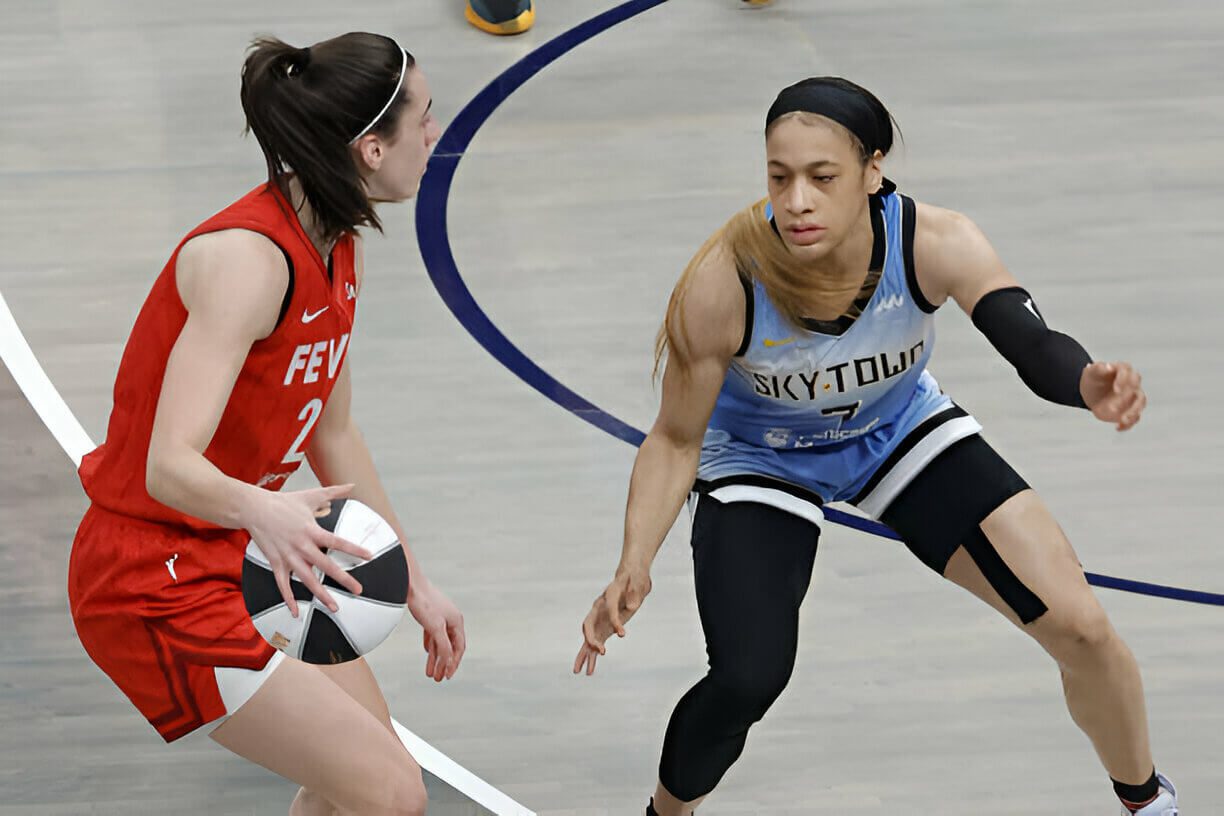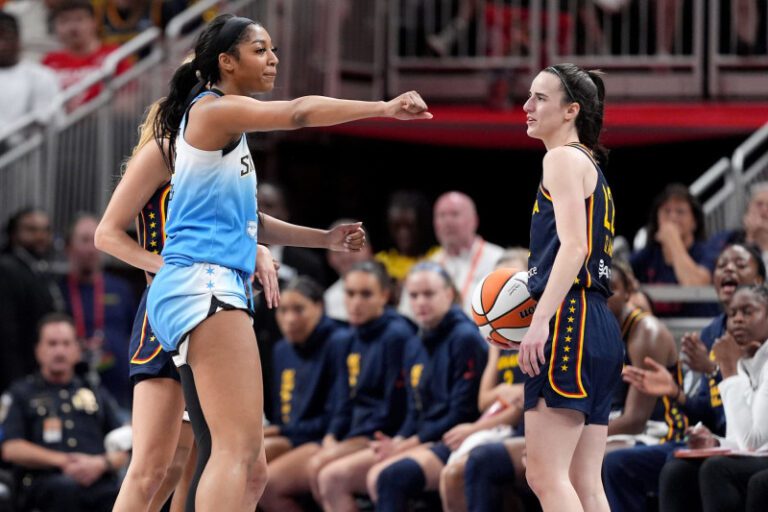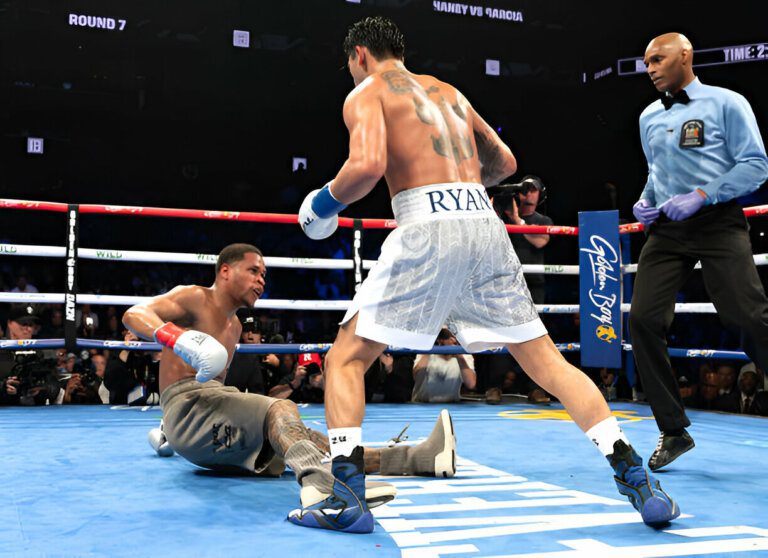The WNBA’s decision to upgrade Chennedy Carter’s foul on Caitlin Clark to a flagrant-1 reflects a firm stance on maintaining fair play and ensuring player safety. While Clark focused on game execution, Carter justified her actions as competitive spirit. In a separate move, Angel Reese faced a fine for skipping postgame media duties, underscoring the league’s commitment to media engagement. These actions raise questions about the balance between competitive intensity and professionalism, both on and off the court. How will these decisions impact the players and the league moving forward?
In Case You Missed It
Article Highlights
- Chennedy Carter’s foul on Caitlin Clark was upgraded to a flagrant-1 after a postgame review for excessive contact.
- The WNBA’s decision to upgrade the foul emphasizes the league’s commitment to fair play and player safety.
- Angel Reese was fined $1,000 for missing the mandatory postgame media session.
- The Chicago Sky incurred a $5,000 fine for failing to ensure player compliance with media obligations.
- These fines underscore the WNBA’s emphasis on professional responsibility and fan engagement.
Foul Upgrade Details
The WNBA upgraded Chicago Sky guard Chennedy Carter’s infraction against Indiana Fever rookie Caitlin Clark to a flagrant-1 after a thorough review. Initially, Carter’s shoulder shot to Clark during the quarter following the second was deemed a common foul. However, upon further examination, league officials determined the action warranted a more severe classification. The WNBA has mechanisms to reassess and upgrade fouls postgame to guarantee fair play and player safety. This upgrade reflects the league’s commitment to maintaining a balance between competitive physicality and sportsmanship. Players who accumulate flagrant foul points may face additional penalties, such as fines or suspensions. The aim is to deter overly aggressive conduct and uphold the standards of the game.
Player Reactions
Caitlin Clark expressed her surprise at the foul but remained focused on game execution, showing resilience amidst the physical play. Clark acknowledged the intensity of the game, underscoring her commitment to maintaining composure and contributing effectively on the court.
Chennedy Carter defended her actions, stating they were born from competitive spirit and the heat of the moment. She urged critics to take into account her passion for the game rather than judge based on one incident.
Chicago Sky coach Teresa Weatherspoon discussed the incident privately with Carter, ensuring that lessons were learned. Meanwhile, Indiana Fever coach Christie Sides praised Clark’s composure and resilience, highlighting her ability to stay focused despite the physical challenges. Both teams stressed the importance of maintaining sportsmanship.
Media Compliance Fines
In response to media compliance issues, Angel Reese received a $1,000 fine for not conversing with the press postgame. The Chicago Sky were also fined $5,000 for not ensuring all players adhered to media obligations. These fines underscore the WNBA’s emphasis on player availability for media interactions, which is vital for league promotion and fan engagement. By imposing these penalties, the league aims to uphold its standards and policies. Media compliance is not just a formality but a key component of professional responsibility. Ensuring that players engage with the media helps maintain the league’s visibility and connection with its audience, which is essential for the sport’s growth and popularity.
League Regulations
WNBA regulations allow for postgame reviews to reclassify infractions, ensuring a balance between physicality and player safety. The league’s ability to upgrade fouls postgame, like Chennedy Carter’s recent upgrade to a flagrant-1 against Caitlin Clark, underscores its commitment to fair play. Players can incur fines or suspensions if they accumulate flagrant foul points, reinforcing adherence to rules. Coaches are instrumental in guiding players toward appropriate conduct on the court. The league’s review mechanisms help maintain a competitive yet safe environment. Moreover, fines for media non-compliance, as seen with Angel Reese, highlight the WNBA’s emphasis on player availability and engagement. These regulations collectively aim to uphold the league’s standards of sportsmanship and transparency.
Player Performance
While the league guarantees fair play through its regulations, player performance on the court remains the ultimate measure of resilience and skill. Caitlin Clark exemplified this with her impressive stats, scoring 11 points, grabbing 8 rebounds, and dishing out 6 assists despite facing physical challenges. Her ability to maintain composure and contribute prominently underscores her talent and determination. On the other hand, Angel Reese showcased her prowess with 8 points and an impressive 13 rebounds, highlighting her impact on both ends of the floor. Their performances not only reflect personal excellence but also emphasize the importance of standing strong in the face of adversity, a key aspect in the competitive landscape of the WNBA.








